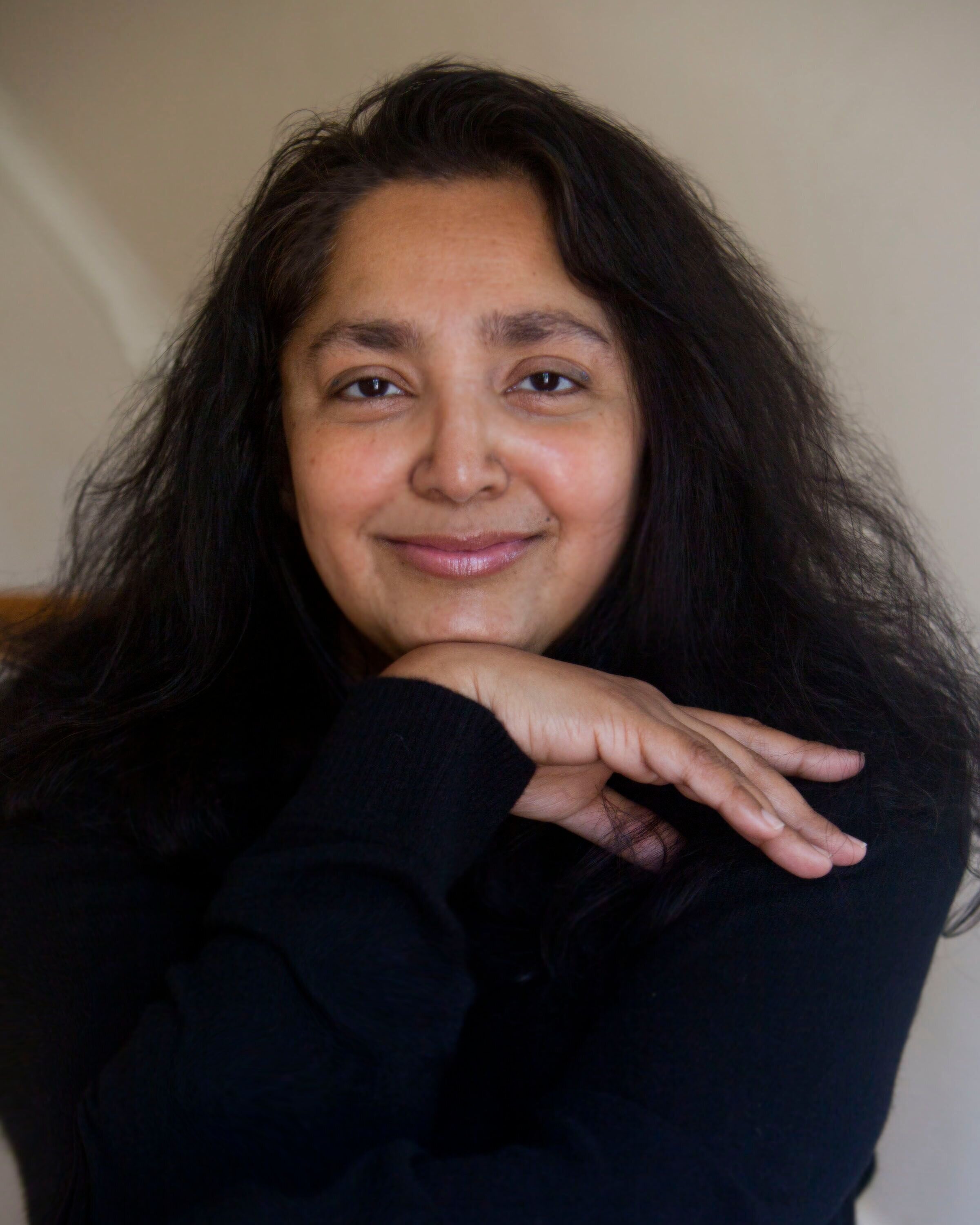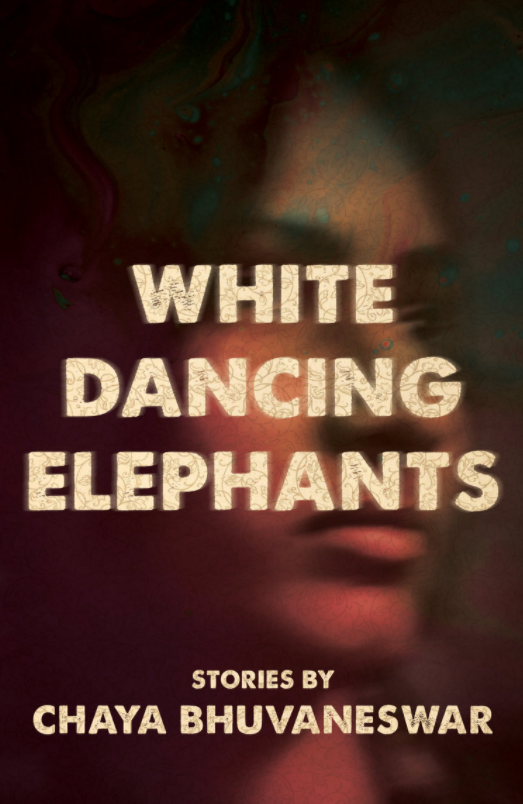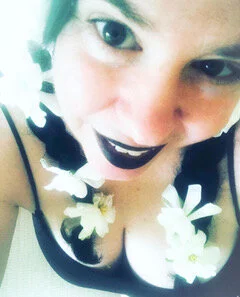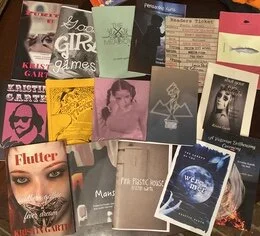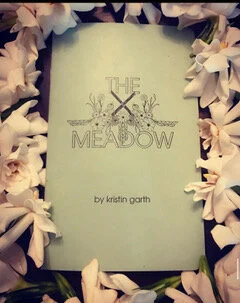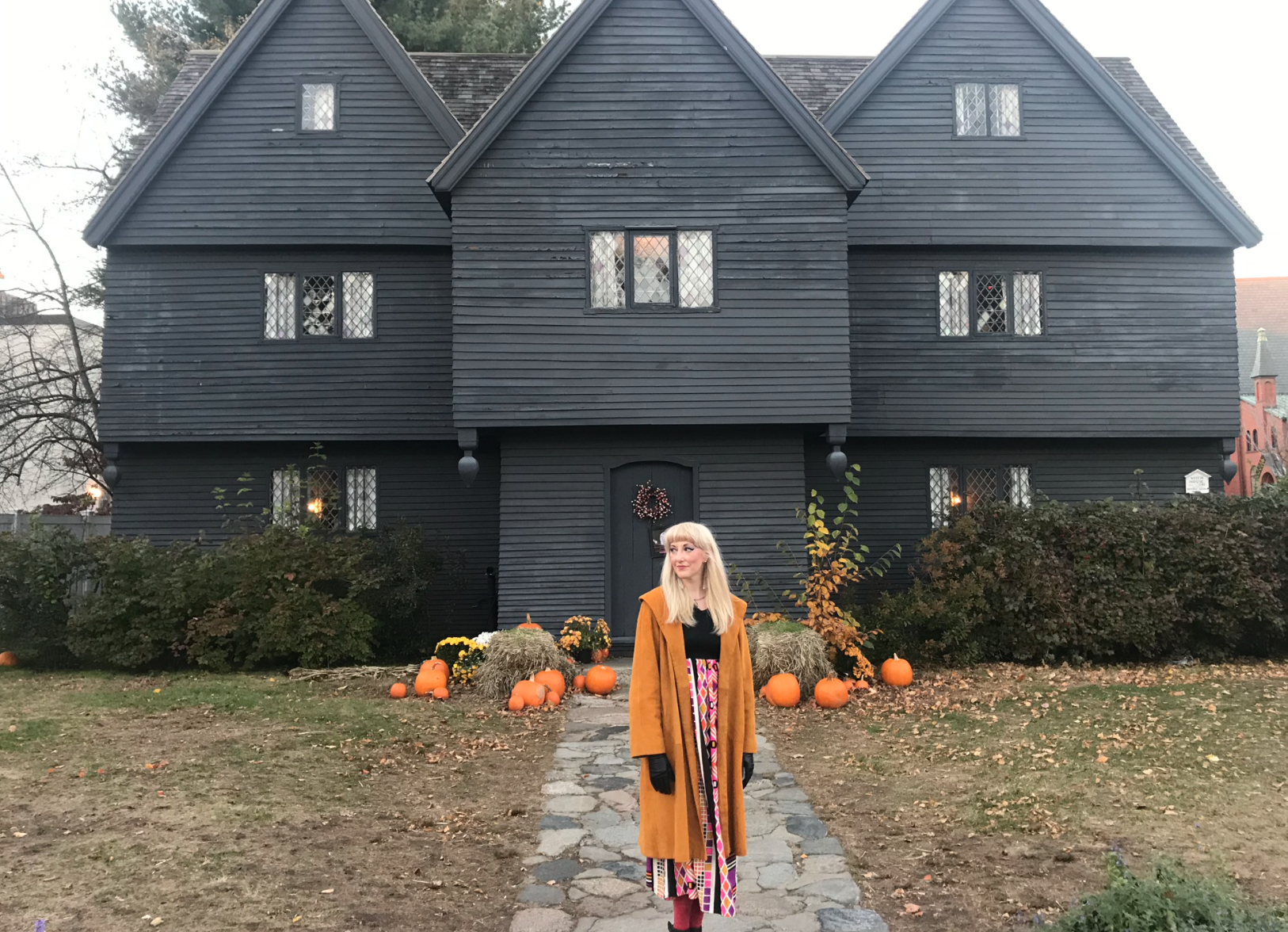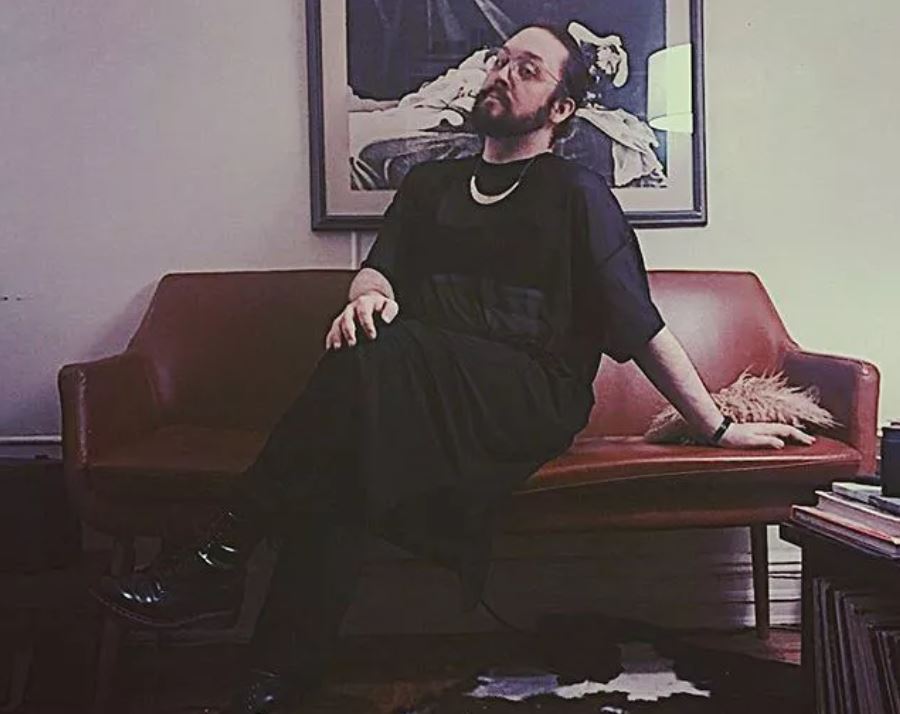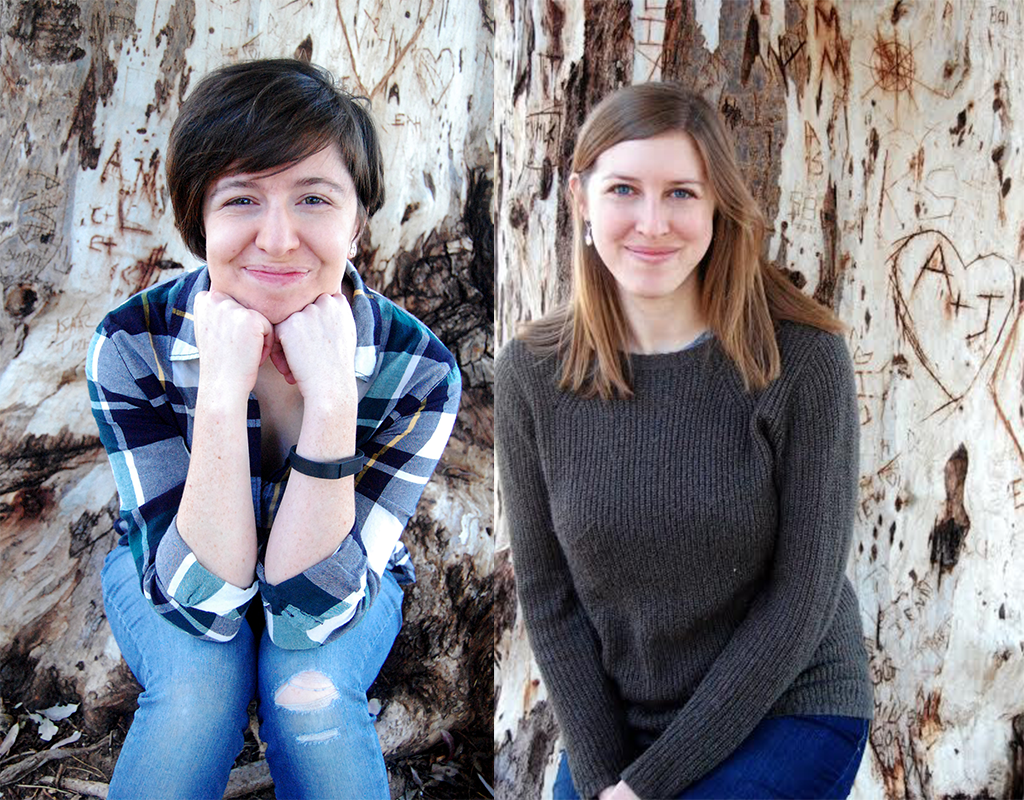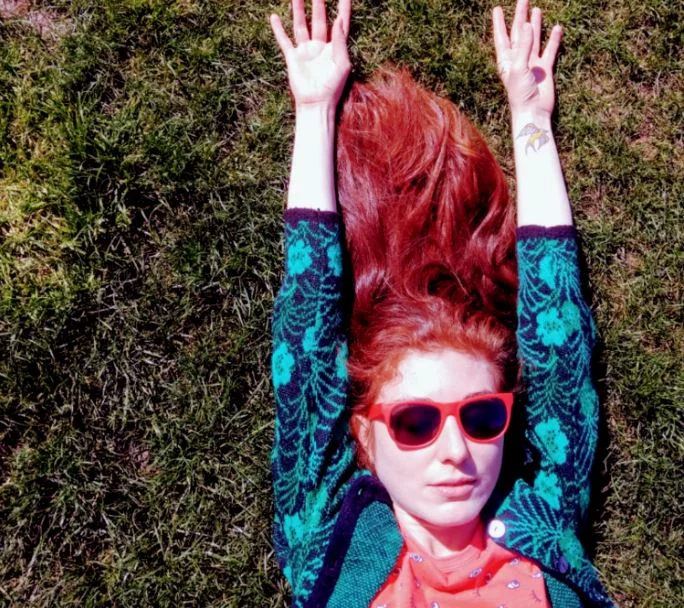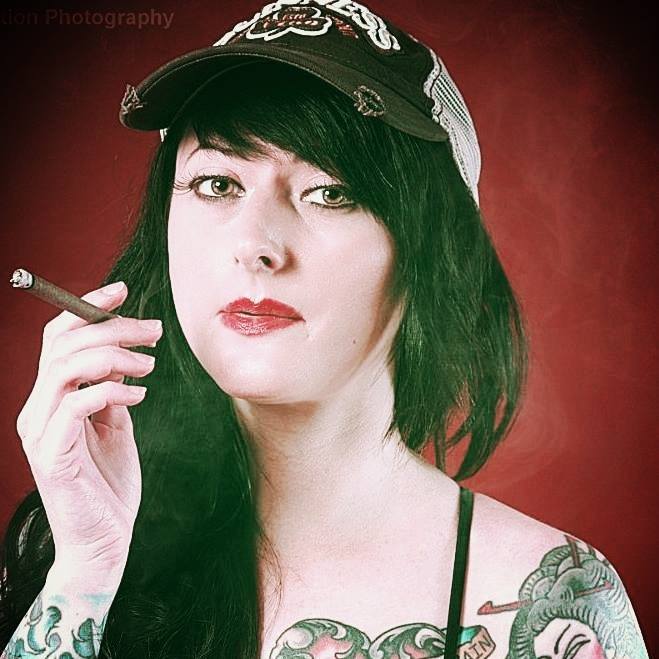By Anita Felicelli
Editor’s Note: Anita Felicelli interviewed writer and physician, Chaya Bhuvaneswar, about her award-winning story collection, White Dancing Elephants, which was the winner of the 2017 Dzanc Books Short Story Collection Prize and a PEN American finalist for debut shorty story collection in 2019. Jimin Han called the book a “daring mix of ancient, contemporary, and dystopic stories carries us to the heart of rarely exposed longing, loss, and the politics of violence and endurance in remarkable, elegant, heart-stopping prose,” while Kirkus Reviews called it a “evocative, electric...an exuberant collection.”
Felicelli asked Bhuvaneswar poignant questions regarding the collection, writing about anger, motherhood, pregnancy loss, gender, and sexuality. You can read the interview below.
Anita Felicelli: We rarely see depictions of Tamil women's anger in books or films. In this book, there are many stories that explore this culturally forbidden emotion in an exceptionally full way. Can you talk a little about your process and what you tap into when exploring anger, how you translate this anger into language on the page and any challenges around that?
Chaya Bhuvaneswar: I love this question as a starting point, because it reflects an artistic choice to engage and acknowledge anger, to let it flower and see where it leads. That act is so critical, to refuse to swallow down our anger, especially within a Tamil culture so fundamentally dependent on women’s willingness and ability to gracefully stay ‘in place.’ It’s hard to imagine now: the things my father would say to me, the things other men in our community felt they had the right to say and do.
One year during undergrad, I actually wrote down a long list. Not only of what they’d said, but also what people outside the community had said to me in high school and college, the mocking slurs. So many stories come from that flint – those two experiences – violence ‘inside’ and violence ‘outside.’ I think the anger that flames out from those two striking against each other is at least partly what powers my work.
Once I start writing a given story, I would say there are no barriers I feel to fully exploring any emotion of the characters. The most challenging aspect of any piece of writing for me may be to understand how to structure the story around that emotional core, to find that balance between spontaneity and coherence.
AF: I found the miscarriage story that opens the collection really beautiful. We almost never see desi women characters who complicate certain cultural expectations related to motherhood. Can you talk a little about your choice to write the title story in second person as an address to the unborn fetus?
CB: For me, writing is the most productive when it’s unplanned. I hadn’t even planned to write that afternoon—I was jet lagged— but I was sitting in a small hotel lobby nothing like the one in the story in Amsterdam, and I missed my son. Missing him made me realize how much I also missed the child I miscarried. How I thought of that child as a distant child, not gone. Some of the most interesting stories to write emerge from writing about a person, place, even a thing, where the act of writing teaches you what you think and feel, what you didn’t know when you started putting words on the page. Meanings emerge as you write.
I am also interested in emotions that surprise me. Until my miscarriage, I was still so caught up in the unresolved work of forgiving and accepting my parents as people. I was still preoccupied with my parents, often angry at them, certainly disappointed at not getting the help from them I’d hoped to have in order to balance working full time with having a young baby. They, too, were quite angry at me for many reasons, not too many of which actually made sense, kind of a constant, bitter, broad anger that in a large way, I had “failed” as a traditional daughter.
Until that miscarriage, I didn’t even understand how much I loved and would love my own children and how that intensity would so completely displace the old intensity with my parents. I didn’t understand until the early morning that I saw the bleeding and couldn’t stop it, how much I could grieve a loss. I’m grateful to that story, “white dancing elephants,” if it makes sense to be grateful to a story, because it gave me the insight to shape my work life around that love of my family. Where “family” so clearly means my children and partner, not my parents in the same way. I’m very proud of my parents now. I’m proud of how they economized and saved up enough to have the retirement they’d hoped to; how they cared for my brother; how my mother, even now, is sewing us masks.
AF: And I'm always intrigued by whether or not sad or dark dimensions of life are aestheticized in various authors' stories. I feel we talk about this too little, about the role of aesthetics when rendering violence or tragic topics. In the title story about miscarriage, the voice is very lyrical. To what extent are you thinking about aesthetics or the "voice" of the story as you write?
CB: Unless the narrator of a story wants to objectify violence, I never want to, and if the narrator wants to dwell on those details, he’d better have a damn good reason. I don’t think I would have been able to or wanted to write from any viewpoint but Jayanti’s, the survivor’s, in “Orange Popsicles.” I wouldn’t want to write from the viewpoint of one of the rapists, who savored the quasi-pornographic aesthetics of what they were trying to do to her. I think so much of the violence I’m interested in is emotional, verbal. Lyricism can be a way the survivor, the listener, copes with that violence.
AF: And equally, there's a strong thematic thread of female-on-female betrayal, simultaneous friendship and betrayal, in many of these stories. As a writer, do you think consciously about complicating the narrative of perfect victims and perfect villains? I'm interested in how Sula might have influenced you in your writing of Talinda, for example. Or do these complications arrive for you at a more subconscious level?
CB: Everyone has themes and obsessions they continue returning to. For me it’s both betrayal and the fear of being betrayed, as well as the equally interesting process by which someone determines that they have “no choice” but to betray another. What I work on, in life as well as fiction, is to conceptualize “betrayal” from the point of view of the person who is doing the betraying.
Sula is such an important work and one I’ve repeatedly returned to. The rose birthmark. This quote:
“Like any artist without an art form, she became dangerous.”
― Toni Morrison, Sula
I remember reading that during a period of my life when I did not feel like I could make the time or space to write, and gradually reckoning with how true it was, how dangerous we can become to ourselves, when we don’t do all of what we’re supposed to do, when we don’t realize our purpose.
AF: How does your work as a psychiatrist inform your sense of gender and wild conduct in the book? When you're writing, do you think of characters on a clinical level, or do you see fiction as a completely distinct path into human disarray and foible? I think of a character like Maya in “The Shaker Chair” who acts against social norms evidently due to mental illness - does she have more of a backstory in your mind? How did you decide to place the story within the point of view of the Black psychiatrist Sylvia who treats her and is simultaneously repulsed and drawn to her?
CB: It’s taken me awhile to understand the answer to this question. I would say all gifted writers are acute psychologists. I’m often stunned by the psychological acuity of writers describing characters’ motivations. The level of understanding and insight is extremely humbling. But at the same time, writers don’t have, or want to have, the “therapeutic” mission, or at least, don’t want to have to include that aspect. I remember wincing, but acknowledging the truth of Zadie Smith’s statements, for example, emphatically differentiating “writing” from “therapy.”
Writing is driven by the writer’s desire, the urge to know and tell a story. If a story is brutal to the characters, but works as a story, that’s enough. So even though writers also share that psychological insight, there is no real connection between writing and psychiatry. In psychiatry, the sole purpose is healing. There’s nothing more important than the patient’s well-being.
AF: I'm fascinated by the erotic or sexual in these stories, the way sex so often shades into deep betrayal in these hugely energetic and dynamic stories in the collection. It feels, often, cathartic and visceral. I'm thinking in particular of the characters in “Orange Popsicles” and “Talinda” and “Chronicle of a Marriage Foretold” and “In Allegheny.” Can you talk a little bit about the intra-gender social dynamics you were tapping into with these stories?
































